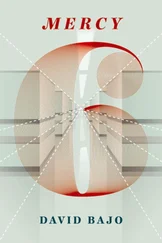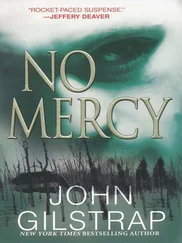Andrea Dworkin - Mercy
Здесь есть возможность читать онлайн «Andrea Dworkin - Mercy» весь текст электронной книги совершенно бесплатно (целиком полную версию без сокращений). В некоторых случаях можно слушать аудио, скачать через торрент в формате fb2 и присутствует краткое содержание. Жанр: Старинная литература, на английском языке. Описание произведения, (предисловие) а так же отзывы посетителей доступны на портале библиотеки ЛибКат.
- Название:Mercy
- Автор:
- Жанр:
- Год:неизвестен
- ISBN:нет данных
- Рейтинг книги:3 / 5. Голосов: 1
-
Избранное:Добавить в избранное
- Отзывы:
-
Ваша оценка:
- 60
- 1
- 2
- 3
- 4
- 5
Mercy: краткое содержание, описание и аннотация
Предлагаем к чтению аннотацию, описание, краткое содержание или предисловие (зависит от того, что написал сам автор книги «Mercy»). Если вы не нашли необходимую информацию о книге — напишите в комментариях, мы постараемся отыскать её.
Mercy — читать онлайн бесплатно полную книгу (весь текст) целиком
Ниже представлен текст книги, разбитый по страницам. Система сохранения места последней прочитанной страницы, позволяет с удобством читать онлайн бесплатно книгу «Mercy», без необходимости каждый раз заново искать на чём Вы остановились. Поставьте закладку, и сможете в любой момент перейти на страницу, на которой закончили чтение.
Интервал:
Закладка:
atomic flames on the way, coming soon, at a theater near you,
the dread fire that could never be put out once it was ignited; I
saw it, simple, in front o f m y eyes, there never was a chance, I
lived in the flames and the flames were a ghostly wash o f
orange and red, as i f an eternal fire mixed with blood were the
paint, and a great storm the brush. I lived in the ordinary fire,
whatever made them follow you and push you down, yo u ’d
feel the heat, searing, you didn’t need to see the flame, it was
more as if he had orange and burning hands a mile high; I
burned; the skin peeled off; it deformed you. The fire boils
you; you melt and blister; then I’d try to write it down, the
flames leaping o ff the cement, the embodiment o f the lover;
but I didn’t know what to call it; and it hurt; but past what they
will let you say; any o f them. I didn’t know what to call it, I
couldn’t find the words; and there were always adults saying


no, there is no fire, and no, there are no flames; and asking the
life-or-death question, you’re still a virgin, aren’t you; which
you would be forever, poor fool, in your pitiful pure heart.
Y ou couldn’t tell them about the flames that were lit on your
back by vandal lover boys, arsonists, while they held you
down; and there were other flames; the adults said not to
watch; but I watched; and the flames stayed with me, burning
in m y brain, a fire there, forever, I lived with the flames my
whole life; the Buddhist monks in Vietnam who burned
themselves alive; they set themselves on fire; to protest; they
were calm; they sat themselves down, calm; they were simple,
plain; they never showed any fear or hesitation; they were
solemn; they said a prayer; they had kerosene; then they were
lit; then they exploded; into flame; and they burned forever; in
my heart; forever; past what television could show; in its gray;
in its black and white and gray; the gray cement o f gray
Saigon; the gray robes o f a gray man, a Buddhist; the gray fire,
consuming him; I don’t need to close my eyes to see them; I
could reach out to touch them, without even closing my eyes;
the television went off, or the adults turned it off, but you
knew they were still burning, now, later, hours, days, the
ashes would smolder, the fire’d never go out, because if it has
happened it has happened; it has happened always and forever.
The gray fire would die down and the gray monk would be
charred and skeletal, dead, they’d remove him like so much
garbage, but the fire’d stay, low along the ground, the gray
fire would spread, low along the ground, in gray Saigon; in
gray Camden. The flames would stay low and gray and they
would burn; an eternal fire; its meaning entrusted to a child for
keeping. I think they stayed calm inside the fire; burning; I
think they stayed quiet; I mourned them; I grieved for them; I
felt some shadow o f the pain; maybe there was no calm;
maybe they shrieked; maybe it was an agony obscene even to
God; imagine. I’d go to school on just some regular day and


it’d happen; at night, on the news, they’d show it; the gray
picture; a Buddhist in flames; because he didn’t like the
government in Vietnam; because the United States was
hurting Vietnam; we tormented them. Y o u ’d see a plain street
in Saigon and suddenly a figure would ignite; a quiet, calm
figure, simple, in simple robes, rags almost; a plain, simple
man. It was a protest, a chosen immolation, a decision,
planned for; he burned him self to say there were no words; to
tell me there were no words; he wanted me to know that in
Vietnam there was an agony against which this agony, self-
immolation, was nothing, meaningless, minor; he wanted me
to know; and I know; he wanted me to remember; and I
remember. He wanted the flames to reach me; he wanted the
heat to graze me; he wanted this self-immolation, a pain past
words, to communicate: you devastate us here, a pain past
words. The Buddhists didn’t want to fight or to hurt someone
else; so they killed themselves; in w ays unbearable to watch; to
say that this was some small part o f the pain we caused, some
small measure o f the pain we made; an anguish to communicate anguish. Years later I was grow n, or nearly so, and there was Norm an M orrison, some man, a regular man, ordinary,
and he walked to the front o f the White House, as close as he
could get, a normal looking citizen, and he poured gasoline all
over him self and he lit it and the police couldn’t stop him or get
near him, he was a pillar o f fire, and he died, slow, in fire,
because the war was w rong and words weren’t helping, and he
said we have to show them so he showed them; he said this is
the anguish I will undergo to show you the anguish there,
there are no words, I can show you but I can’t tell you because
no words get through to you, yo u ’ve got a barricade against
feeling and I have to burn it down. I grew up, a stepdaughter
o f brazen protest, immense protest; each time I measured m y
ow n resistance against the burning man; I felt the anguish o f
Vietnam; sometimes the War couldn’t get out o f m y mind and


there was nothing between me and it; I felt it pure, the pain o f
them over there, how wronged they were; you see, we were
tormenting them. In the end it’s always simple; we were
tormenting them. Others cared too; as much as I did; we were
mad to stop it; the crime, as we called it; it was a crime.
Sometimes ordinary life was a buffer; you thought about
orangejuice or something; and then there’d be no buffer; there
was ju st the crime. The big protests were easy and lazy up
against Norm an Morrison and the Buddhist monks; I remember them, as a standard; suppose you really care; suppose the
truth o f it sits on your mind plain and bare; suppose you don’t
got no more lies between you and it; if a crime was big enough
and mean enough to hurt your heart you had to burn your
heart clean; I don’t remember being afraid to die; it just wasn’t
m y turn yet; it’s got your name on it, your turn, when it’s
right; you can see it writ in fire, private flames; and it calls, you
can hear it when you get up close; you see it and it’s yours.
There’s this Lovelace creature, they’re pissing on her or she’s
doing the pissing, you know how they have girls spread out in
the pictures outside the movies, one’s on her back and the
urine’s coming on her and the other’s standing, legs spread,
Читать дальшеИнтервал:
Закладка:
Похожие книги на «Mercy»
Представляем Вашему вниманию похожие книги на «Mercy» списком для выбора. Мы отобрали схожую по названию и смыслу литературу в надежде предоставить читателям больше вариантов отыскать новые, интересные, ещё непрочитанные произведения.
Обсуждение, отзывы о книге «Mercy» и просто собственные мнения читателей. Оставьте ваши комментарии, напишите, что Вы думаете о произведении, его смысле или главных героях. Укажите что конкретно понравилось, а что нет, и почему Вы так считаете.












